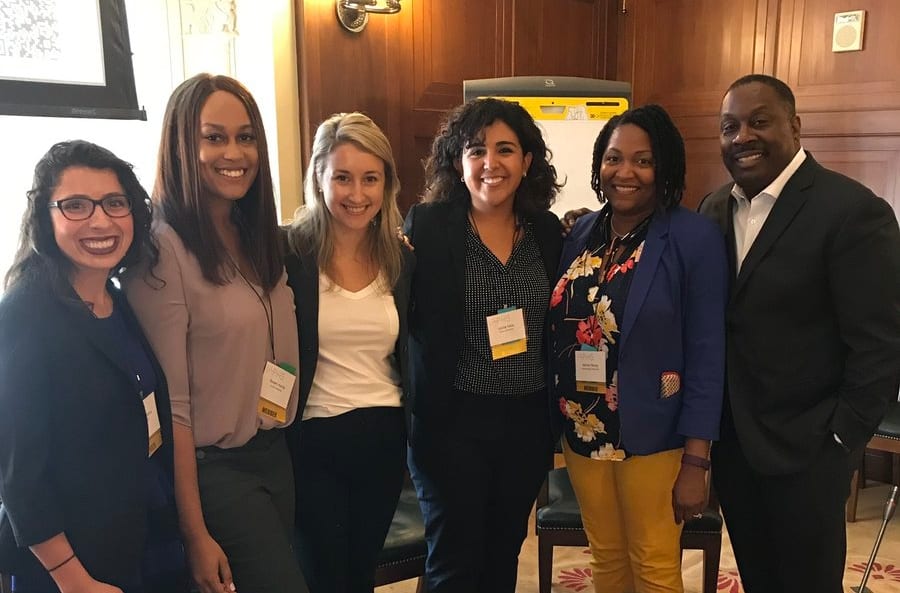Collaborating across disciplines, fields, and sectors is a cornerstone of the Health Policy Research Scholars program. So when the opportunity arose to submit a panel for the 2018 Interdisciplinary Association for Population Health Science Conference, four scholars jumped at the chance.
Approaching the same issue from different angles, together they created a panel titled Your Trauma Is Not Your Own: Research and Perspectives on Childhood Trauma and Mental Health. At the conference in October 2018, each scholar delivered a presentation from her discipline.
Jessica Cerdeña, a doctoral student in the Department of Anthropology at Yale University, presented a talk titled “Biosocial Suffering: Trauma and Epigenetic Inheritance.” She discussed how intergenerational trauma may chemically alter the genes of mothers, affecting children while in utero and soon after birth. Jessica recommended preventative behavioral health care and workshops to help parents—including certain migrant populations and descendants of survivors of genocide—who may be experiencing intergenerational trauma.
Raven Hardy, a doctoral student in the Department of Biological and Biomedical Sciences at Emory University, spoke on “Understanding the Underlying Biological Features of Early Stress.” She presented on differences in brain scans for children who had experienced trauma compared to those who had not, showing drastic disparities in brain size and development between the two groups. Raven called for more longitudinal data to advance our understanding of the relationship between trauma and childhood neurological development.
Leslie Salas-Hernández, a doctoral student in the Department of Behavioral Sciences and Health Education at Emory University, presented on “Parental Incarceration and Children’s Mental Health Outcomes.” She discussed the effects of parental incarceration on children, including increased risks for aggression, anxiety, depression, and poor school performance. Leslie shared several promising practices for combating these effects and increasing resilience, including parenting programs and programs that reduce stigma.
Adrian Neely, a doctoral student in the Department of Middle and Secondary Education at Georgia State University, spoke on “The Role of Schools in Trauma-Informed Interventions.” She presented a literature review on trauma-informed care in schools, showing that one of every four children in school has experienced a traumatic event. Adrian described models for incorporating trauma-informed practices into school systems, including specialized teacher training, alternative disciplinary practices, and interdisciplinary teaching approaches to help students thrive.
The four presentations were followed by a robust discussion in which audience members, including researchers and practitioners, asked questions about program implementation, future research directions, and the relevance of the scholars’ work for health policy and key stakeholders.
One of the biggest takeaways was that disciplinary silos severely limit our understanding and efficacy. Most social scientists in attendance were surprised to discover the multiple ways in which trauma affects gene expression and brain development, while those studying the physical sciences learned a great deal about effective interventions focused on social and cultural aspects of trauma and healing. Interdisciplinary approaches are essential to addressing complex issues, such as childhood trauma, and to helping children thrive.
In the photo from left to right: Jessica Cerdeña, Raven Hardy, Meghan Wolfe (HPRS Program Manager), Leslie Salas-Hernández, Adrian Neely, and Thomas LeVeist, PhD.

